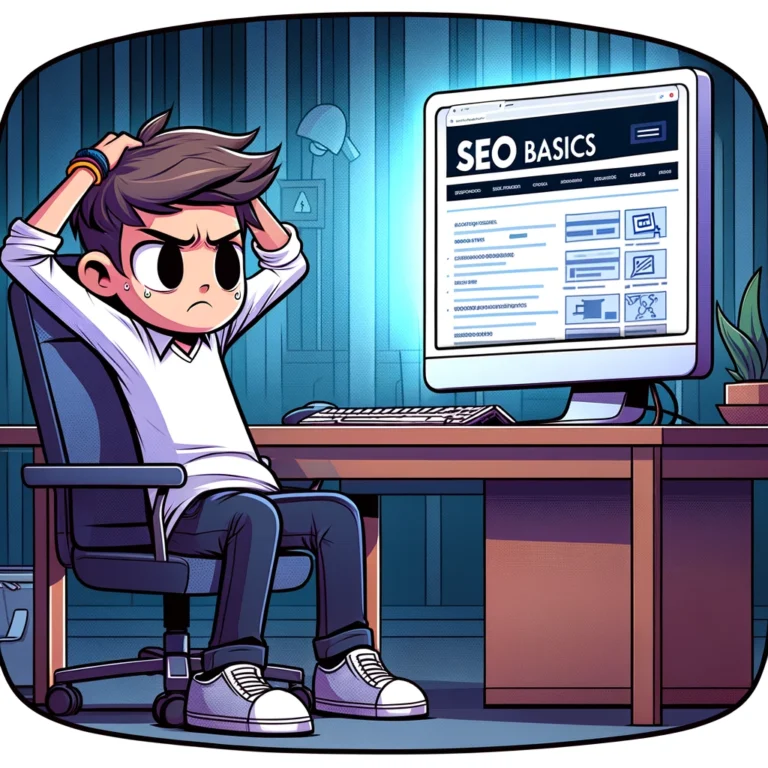In the digital age, understanding how search engines work is crucial for anyone looking to improve their website’s visibility and traffic. This guide aims to demystify search engine algorithms and provide practical advice on optimizing your site for better rankings.
What are Search Engine Algorithms?
Search engine algorithms are complex systems used by search engines like Google, Bing, and Yahoo to find, rank, and return the most relevant pages for a user’s query. Although the specific criteria and mechanisms of these algorithms are closely guarded secrets, the basic principles are well understood and revolve around relevance, authority, and user experience.
How Do Search Engines Rank Websites?
- Crawling and Indexing: Before a website can show up in search results, it must be visited by search engines’ crawlers that scan the site and its content. This process is called crawling. After a site is crawled, the information is indexed, meaning it’s stored in a giant database from which it can be retrieved.
- Relevance: When a user types a query into a search engine, the algorithm sifts through the index to find pages that match the query’s keywords or context. This involves analyzing not only the text on a page but also its context and the way users have interacted with similar content.
- Authority: Search engines also assess the authority of a website to ensure that the content they deliver to users is accurate and reliable. This is primarily measured by links from other well-regarded sites, which are seen as votes of confidence in your content.
- User Experience: Factors like site speed, mobile-friendliness, ease of navigation, and the presence of multimedia also play roles in search engine rankings. A good user experience keeps people on your site longer, decreasing bounce rates and increasing the likelihood of a visit being considered positive by search algorithms.
SEO Basics for Beginners
Optimizing your website for search engines doesn’t have to be complicated. Here are some fundamental SEO techniques that anyone can apply:
- Keyword Research: Identify words and phrases that potential customers use to search for products or services like yours. Tools like Google Keyword Planner can help you find relevant keywords.
- Content Creation: Produce high-quality, relevant content that addresses the needs and questions of your audience. Use your keywords naturally within the text, headings, and metadata of your pages.
- On-Page Optimization: This involves optimizing individual elements of your website, such as title tags, meta descriptions, and images. Ensure your title tags are clear and include main keywords, and that your meta descriptions are compelling enough to click on.
- Off-Page Optimization: Build authority by acquiring links from other reputable sites in your industry. This can be achieved through guest blogging, partnerships, and digital PR.
- Technical SEO: Ensure that your website is structured in a way that search engines can easily understand. This includes using a clear hierarchy for your information, creating a sitemap, and optimizing your site’s load time.
- Local SEO: For businesses with a physical location, it’s important to optimize your site for local search queries. This includes creating a Google My Business account, getting local reviews, and ensuring your name, address, and phone number (NAP) are consistent across the web.
Keep Up with SEO Changes
Search engines continually update their algorithms to provide better results to users and to adapt to new technologies and behaviors. As a site owner, it’s important to stay informed about these changes. Regularly reading SEO blogs, attending webinars, and participating in forums can help you keep up-to-date.
While the world of search engine algorithms can seem intimidating at first, the basics are accessible to everyone. By understanding how search engines work and applying fundamental SEO practices, you can significantly improve your site’s visibility and traffic. Remember, SEO is not a one-time task but a continuous process of improvement and adaptation to the evolving digital landscape.

As your journey into DIY SEO progresses, remember that effective search engine optimization involves a mix of strategic practices and ongoing experimentation. Here, we’ll delve deeper into some advanced strategies and practical tips to enhance your SEO efforts further.
Advanced SEO Strategies
- Mobile Optimization: With the majority of internet users accessing the web via mobile devices, ensuring your website is mobile-friendly is crucial. Google predominantly uses the mobile version of the content for indexing and ranking. Test your website’s mobile responsiveness and improve it as necessary.
- Voice Search Optimization: As voice search becomes increasingly popular, optimizing for voice queries is a smart move. This involves targeting long-tail keywords and more conversational phrases that people are likely to use when speaking rather than typing.
- Structured Data: Implementing structured data (Schema markup) can help search engines better understand and display your content in rich snippets, such as star ratings, prices, and author information. This can increase visibility and click-through rates from the search results page.
- Content Freshness: Search engines favor recently updated content, viewing it as more relevant to searchers. Regularly updating your old content with current information and new data can boost its rankings.
- Video SEO: As content consumption preferences shift towards video, it’s beneficial to include video content on your site. Optimize your video content by using relevant keywords in the title, description, and tags, and host videos on popular platforms like YouTube for additional exposure.
Practical SEO Tips
- Understand Your Audience: SEO isn’t just about pleasing search engines, but more importantly, it’s about engaging your target audience. Understanding what your audience seeks online can guide your content creation and optimization strategies.
- Use Analytics: Tools like Google Analytics provide valuable insights into your website’s traffic and user behavior. Use this data to refine your SEO strategies, by understanding which pages perform well and which ones don’t.
- Avoid Common Pitfalls: Simple mistakes can undermine your SEO efforts. Avoid overusing keywords (keyword stuffing), duplicating content, and creating poor-quality backlinks. These can result in search penalties, negatively impacting your rankings.
- Competitor Analysis: Keep an eye on what your competitors are doing. Tools like SEMrush and Ahrefs can help you analyze your competitors’ SEO strategies. Understanding their tactics can help you identify SEO opportunities and gaps in your own strategy.
- Continuous Learning: SEO is a rapidly evolving field, and staying updated with the latest trends and algorithm updates is crucial for maintaining and improving your rankings.
Conclusion
Effective SEO involves understanding the fundamentals of how search engines work and implementing a mix of basic and advanced strategies to enhance your site’s visibility. Remember, SEO is an ongoing process that requires persistence, adaptability, and continuous learning. By staying informed and proactive, you can improve your website’s search engine rankings significantly, ultimately leading to greater visibility and success online.
References
- Continue exploring resources like Google’s Webmaster Guidelines, Bing’s Webmaster Tools, and SEO-focused platforms such as Moz, SEMrush, and Ahrefs for up-to-date tips and strategies.



